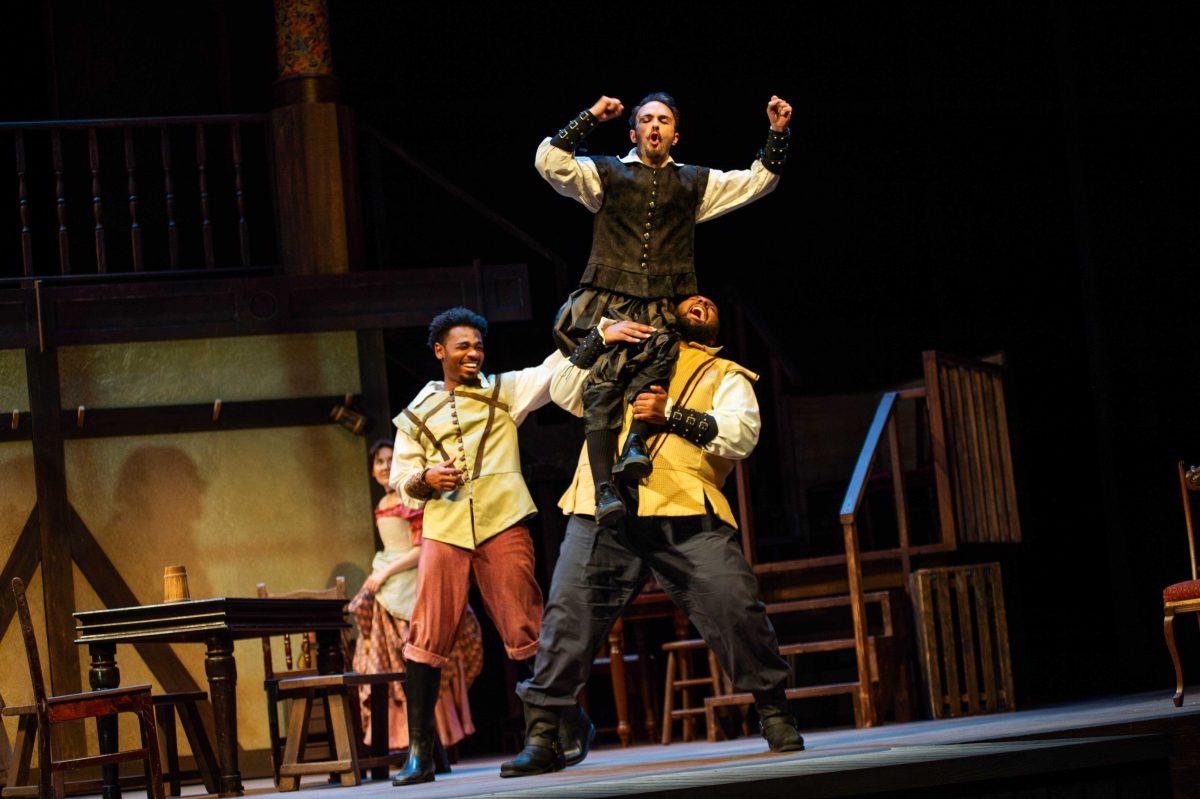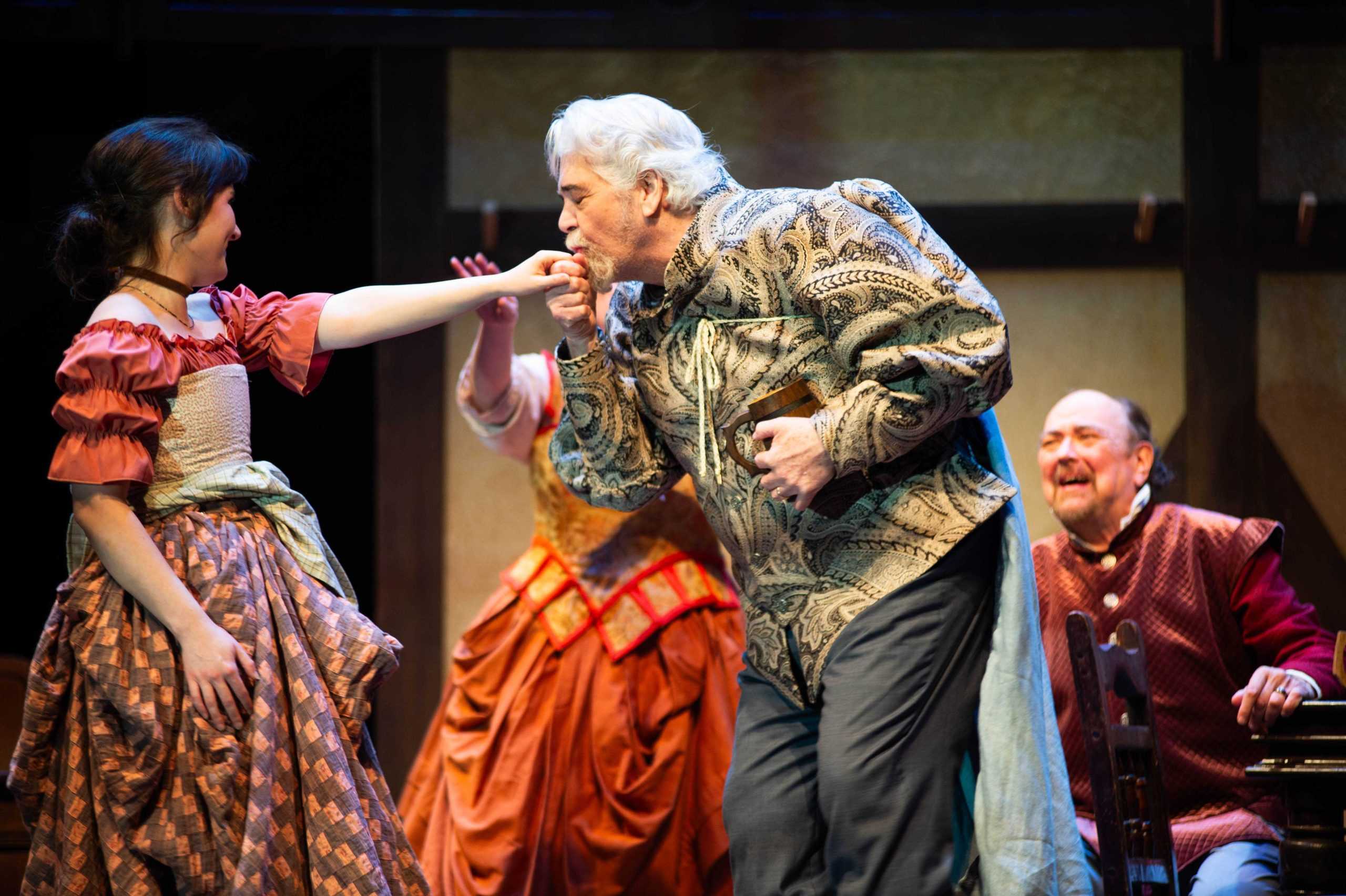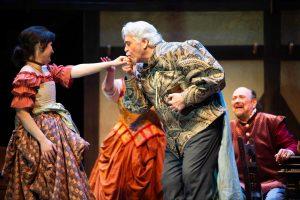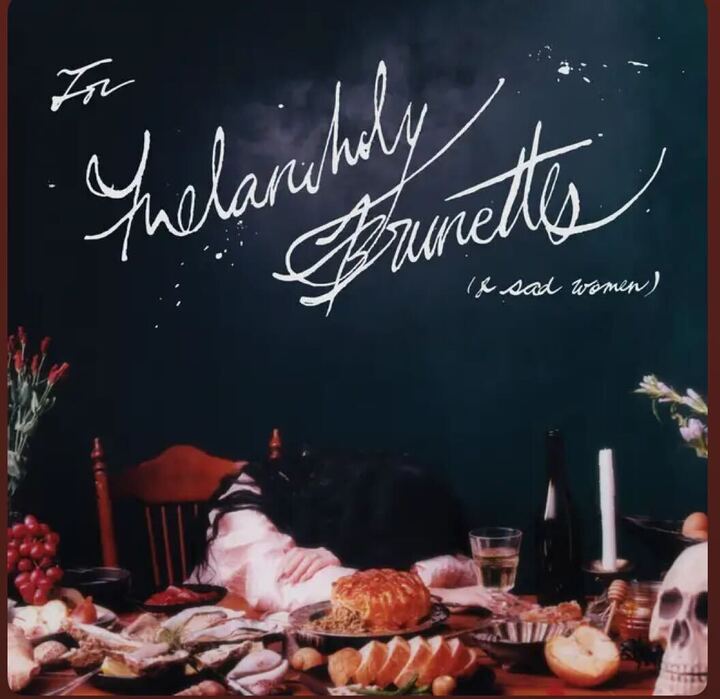What would happen if none of William Shakespeare’s works were published? What if they traveled down generation after generation through word-of-mouth until they were merely skeletons of his original work? Luckily, that did not happen.
In a recent production of “The Book of Will” by Lauren Gunderson, put on by the LSU School of Theatre, Shakespeare’s friends work together to publish a complete collection of his life’s work to make sure his memory stays alive following his death. The show opened on Feb. 15 and will run through March 5 in the Claude L. Shaver Theatre.
Douglas Scott Streater is a graduate of LSU’s master of fine arts program and plays Henry Condell in the show. He highlighted the show’s theme of appreciation and recognition from others in an artist’s career, as they often see the value and potential of the artist’s work more clearly than the artist themselves.
“Sometimes, when you’re too close to a gift or a skill, it is hard to see the value of it,” Streater said, “but those around you often sit back and watch what you do with awe and inspiration.”
Streater said that in this production, Shakespeare’s friends saw the value of his work that he could not see. Most importantly, they saw its ability to stand the test of time. He said that with a lot of artists, their work is, unfortunately, not appreciated until after they have died. It’s then that those close to the artists are able to showcase their work and have others finally begin to acknowledge it.
“The people who love and admire you and call you friend will oftentimes carry you into places that you cannot go by yourself,” Streater said.
The show also calls upon the importance of live theatre in the modern era and how shows and characters can reflect what is happening in our own lives.
In the show, Tony Medlin, a theatre performance teacher at Baton Rouge Community College, plays the character John Heminges. The character has a strong arc preceding the death of his wife.
Medlin discussed his own personal journey of getting vulnerable through his character and how George Judy, the director of the show and an LSU theatre professor, helped him achieve that.
“All I have to do is think about losing my wife, and every time I read that scene, I just lose it,” Medlin said. “The struggle is not to, because [Heminges] is such a rationalist and a logician that he’s fighting all the time. That’s his problem, he won’t give into the emotions. He’s fighting to compartmentalize it and figure it all out and you can’t.”
Theatre can be a powerful tool for dealing with personal journeys such as grief. Many of Shakespeare’s plays portray that feeling of emptiness and loneliness when grieving someone you love, along with the actions you would take to make sure their life held purpose.
“Grief is going to do to you what it will do, and it will never go away. You might be able to learn to deal with it, but like the tide it will always come back in,” Medlin said. ”In terms of a personal journey, that was a real struggle for me to learn to marshal and arrange emotion, not just feel it.”
Much of the show focuses on the importance of art and culture in our lives. Many of the stories we hold such high praise for today would not have existed if not for Shakespeare’s work hundreds of years ago.
If you are unfamiliar with his work, watching the show can still provide you with an incredible story and experience, told by talented actors. You can also learn about why theatre is still a valuable art form.
“Shakespeare is very important to the core of this program,” cast member and senior theatre major Ansel Wilder said. “Obviously, also, to the core of theater in general. I think a show like this being put on is a rarity, rather than adapting Shakespeare. We’re telling the story of how that came to be, which is in a way, just as, if not more, valuable than reading Shakespeare itself.”
Wilder said “The Book of Will” provides a different perspective on Shakespeare that people don’t usually see.
Even though there is a real love of language in the script, Gunderson is able to make Shakespeare feel very accessible in the way that she highlights the womens’ stories in the script and through the language and the humor.
The production’s associate director, theatre senior Makaylee Secrest, described the show as a “love letter to live theatre.”
“To me, the show reminds us of what we gain whenever we come together,” Secrest said. “To share stories with each other. Everyone in the show is motivated by an intense commitment to preserve their life’s work, whether that be family or business. It’s about valuing the things that are most important to us.”












